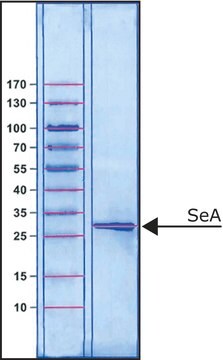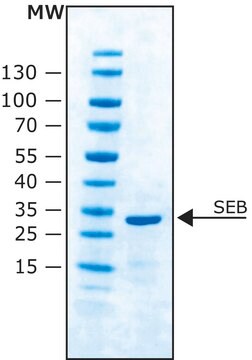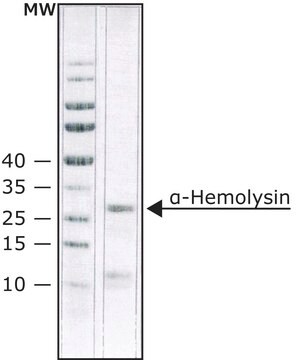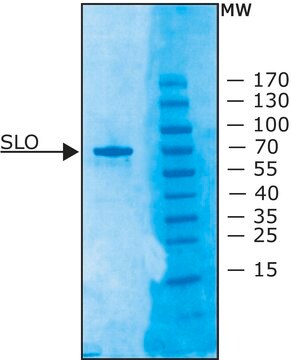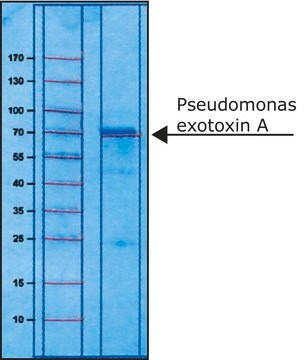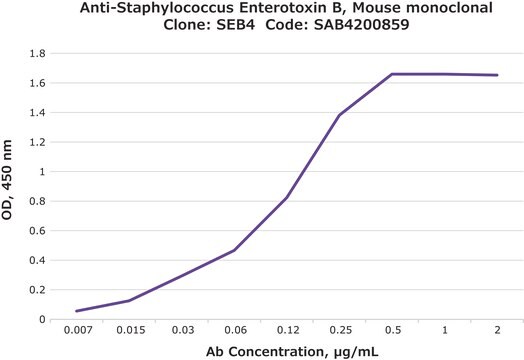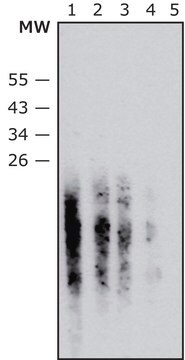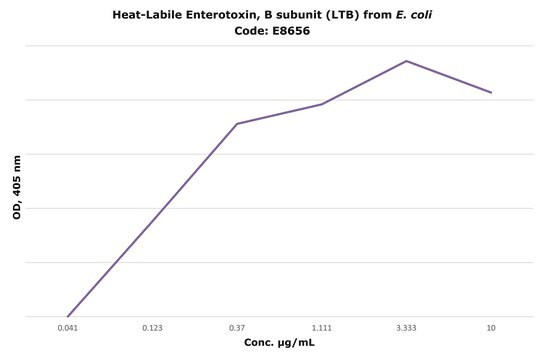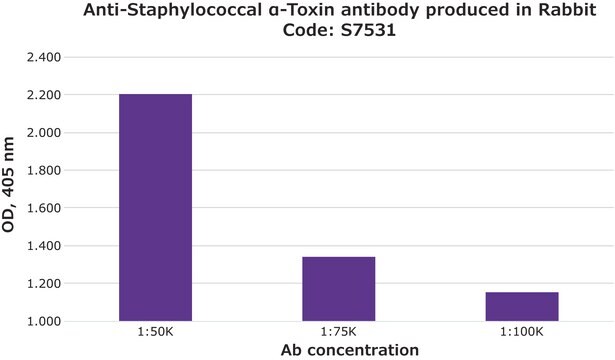T5662
Toxic shock syndrome toxin-1 from Staphylococcus aureus
Synonyme(s) :
Staphylococcal Enterotoxin F, TSST-1
About This Item
Produits recommandés
Composition
Contains ~50% protein (Lowry); balance primarily sodium chloride and sodium phosphate buffer.
Niveau de qualité
Disponibilité
not available in USA
Solubilité
H2O: soluble 0.50-0.60 mg/mL, clear to slightly hazy, colorless to faintly yellow
Température de stockage
−20°C
Application
Actions biochimiques/physiologiques
Notes préparatoires
Mention d'avertissement
Danger
Mentions de danger
Conseils de prudence
Classification des risques
Acute Tox. 2 Dermal - Acute Tox. 2 Inhalation - Acute Tox. 2 Oral
Code de la classe de stockage
6.1A - Combustible acute toxic Cat. 1 and 2 / very toxic hazardous materials
Classe de danger pour l'eau (WGK)
WGK 3
Point d'éclair (°F)
Not applicable
Point d'éclair (°C)
Not applicable
Certificats d'analyse (COA)
Recherchez un Certificats d'analyse (COA) en saisissant le numéro de lot du produit. Les numéros de lot figurent sur l'étiquette du produit après les mots "Lot" ou "Batch".
Déjà en possession de ce produit ?
Retrouvez la documentation relative aux produits que vous avez récemment achetés dans la Bibliothèque de documents.
Notre équipe de scientifiques dispose d'une expérience dans tous les secteurs de la recherche, notamment en sciences de la vie, science des matériaux, synthèse chimique, chromatographie, analyse et dans de nombreux autres domaines..
Contacter notre Service technique